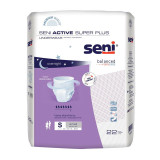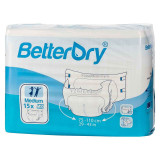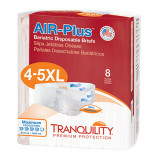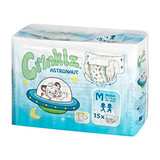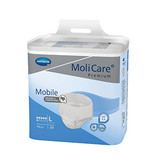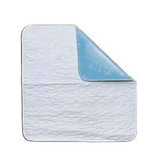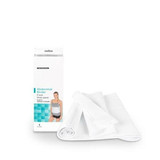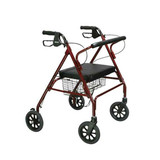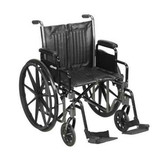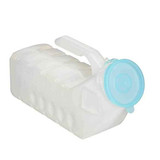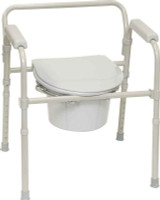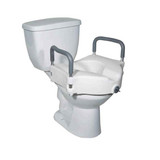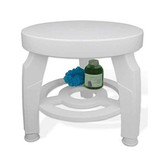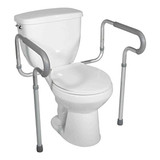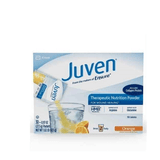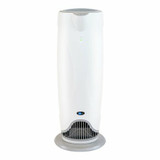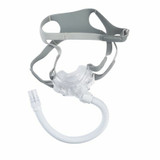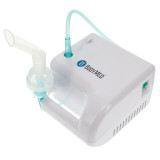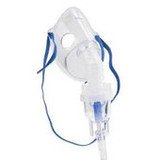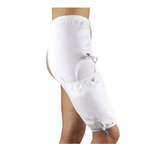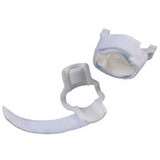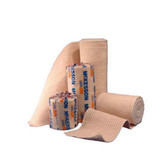
The Caregiver Guide - Dealing with Kidney Diseases
One in seven adult Americans has Chronic Kidney Disease (CKD), according to these statistics published by the National Institute of Diabetes and Digestive and Kidney Diseases (NIDDK). The prevalence is much higher among older people, with almost half of those over 75 having some degree of CKD. As a caregiver, you have a high probability of dealing with the condition at some point.
Kidney diseases often significantly impact a person's overall health and well-being. Proper care and management of CKD and renal failure, however, can help to ensure the best possible outcome for patients. In this article, we will explore the types of kidney diseases, their symptoms and treatment options, and the crucial role that caregivers play in supporting people with these conditions.
Common Types and Symptoms of Kidney Diseases
Polycystic kidney disease (PKD). This genetic disorder causes numerous fluid-filled cysts to develop in the kidneys, leading to their enlargement and impaired function. Symptoms of PKD may include abdominal pain, high blood pressure, blood in urine, frequent urinary tract infections, and kidney stones.
Glomerulonephritis. This is an inflammation in the glomeruli - tiny filtering units within the kidneys. This condition can be caused by infections, autoimmune disorders, or certain medications. Symptoms may vary but commonly include blood in urine, foamy urine due to excess protein loss, swelling in the legs or face (edema), high blood pressure, and fatigue.
Diabetic nephropathy. This is a specific type of kidney disease that occurs as a complication of diabetes. Over time, high blood sugar levels can damage the small blood vessels in the kidneys, impairing their ability to filter waste from the body effectively. Symptoms may include increased urination (especially at night), swelling in the legs or ankles (edema), fatigue, nausea or vomiting, and unexplained weight loss.
These are just a few examples of the most common kidney diseases and their associated symptoms. If you experience any persistent symptoms related to your kidneys or have concerns about your renal health, you must consult a healthcare professional immediately for an accurate diagnosis and appropriate treatment plan.
The Importance of a Healthy Diet and Lifestyle for Kidney Disease Patients
As with any health condition, maintaining a healthy diet and lifestyle goes a long way toward managing kidney disease. A key aspect is following a kidney-friendly or renal diet. This specialized diet focuses on limiting certain nutrients that can strain the kidneys excessively, such as sodium, potassium, and phosphorus, while ensuring adequate protein intake.
Lifestyle changes are equally important for kidney disease patients. Managing fluid intake is crucial, as excessive fluid retention also stresses the kidney and can lead to high blood pressure or other complications. Patients should monitor their fluid intake and consult a healthcare provider to determine appropriate limits.
Adopting an active lifestyle and engaging in regular physical activity also carries numerous benefits for kidney health. Exercise helps improve cardiovascular fitness, maintain a healthy weight and reduce the risk of conditions like diabetes or high blood pressure, which adversely affect kidney function.
Medications and Treatment Options for Kidney Disease Patients
Some medications can help control symptoms and slow down the progression of kidney disease. These include compounds that help regulate blood pressure, manage electrolyte imbalances, reduce inflammation, and protect remaining kidney function.
The next step, and a very common treatment method, is dialysis. It helps remove waste products and excess fluid from the blood when the kidneys can no longer function adequately. There are two types of dialysis:
· Hemodialysis involves using a machine to filter the blood. This is usually done three to five times a week at a medical facility.
· Peritoneal dialysis uses the lining of the abdomen as a filter. This is a daily process that can be performed at home.
In extreme cases, a kidney transplant may be recommended for patients with end-stage renal disease. This involves surgically replacing a diseased kidney with a healthy one from a living or deceased donor. The process requires a thorough evaluation and compatibility testing before a transplant can be performed.
Mental and Emotional Support for Caregivers and Patients Alike
Caring for a loved one can be both physically and emotionally demanding. Caregivers often face high levels of stress, anxiety, and burnout due to the constant demands of their role. This is especially true for caregivers of patients with kidney diseases, as these conditions require ongoing care and management.
To address the mental and emotional needs of caregivers, support groups have become a valuable resource. Caregiver support groups provide a safe space for individuals to share their experiences, express their emotions, and receive support from others who are going through similar challenges. These groups allow caregivers to connect with others who understand their unique struggles and provide valuable insights and coping strategies.
In addition to support groups, there are various mental health resources available specifically tailored for caregivers and patients with kidney diseases. These resources may include counseling services, online forums or communities, educational materials on stress management techniques, and self-care practices.
If you want to investigate the available resources, the Family Caregiver Alliance and the National Alliance for Caregiving are good places to start. You can also reduce the stress of your role by automating the orders for your care requirements.
At LL Medico, our Autoship feature ensures that all your supplies are delivered automatically according to your specified schedule. This set-and-forget service will ensure you never run out of adult diapers, nutritional supplements and over-the-counter medicines. Call us at (855) 422-4556 to find out how we can help you.
Creating a Safe and Comfortable Home Environment
According to a National Center for Biotechnology Information report, kidney diseases affect mobility, and the impact worsens over time. Creating a safe and comfortable home environment is, therefore, an important consideration to ensure the safety and quality of life of a patient.
It may be necessary to make certain home modifications to enhance safety. This can include installing grab bars in the bathroom, ensuring non-slip surfaces, and removing tripping hazards such as loose rugs or cluttered pathways. Widening hallways and doorways and adjusting furniture height to accommodate mobility aids like wheelchairs or walkers can also improve accessibility.
The patient may be using multiple drugs for other conditions, so managing and organizing medications is also important. Firstly, familiarize yourself with the dosage and schedule for each drug. Use pill organizers and set up a reminder system to ensure that medications are taken on time and in the correct quantities.
Conclusion
Kidney diseases present their own unique challenges and can place significant additional stress on a caregiver. We hope that, by following some of the tips we have discussed in this article, you will be able to ease the burden of your caregiving duties. Remember, you cannot pour from an empty cup. You must do what you can to look after your own health as well, not just your patient’s.










